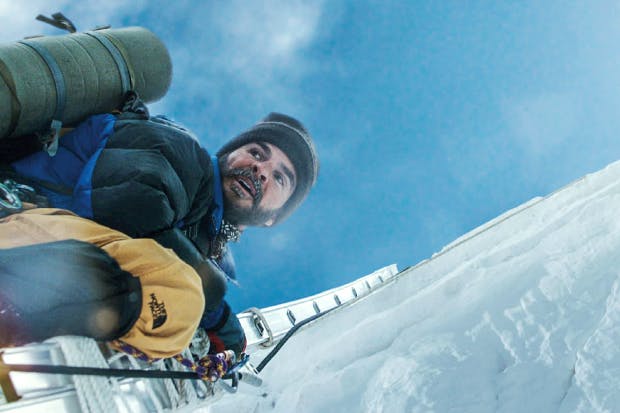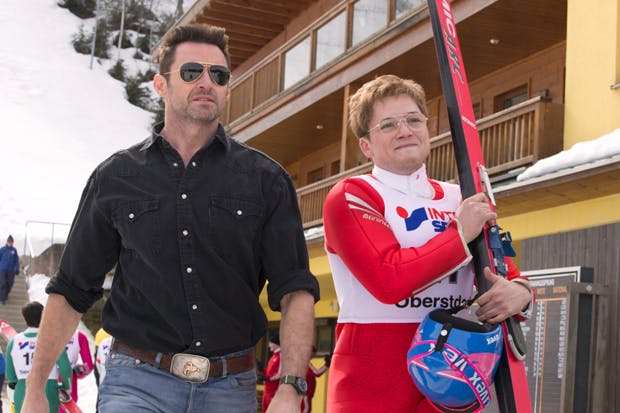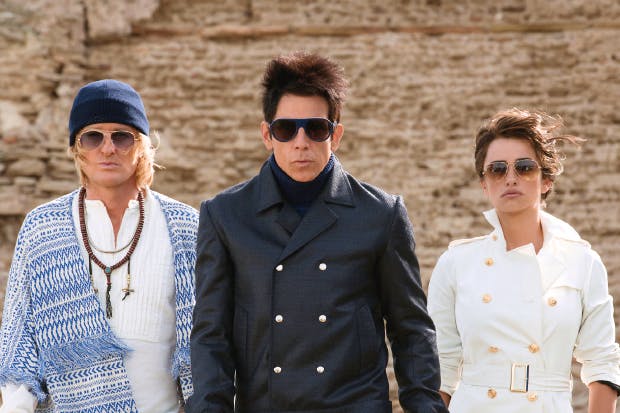‘Ain’t about what’s waiting on the other side,’ sang Miley Cyrus. ‘It’s the climb.’ She’s not usually a musician to be turned to for profound insight but in this case pop’s wild child has captured the absolute crux of this year’s Gravity wannabe, the visually spectacular 3D Everest, which kicked off the Venice Film Festival two weeks ago to a mixed reception.
That’s because, even though in the case of the 1996 Mount Everest disaster (in which eight people died) what was waiting on the other side for most people was a cold and lonely death, it was indeed all about the climb. Despite knowing just what a perilous undertaking reaching the Nepalese summit could be — one in four people died trying at the time — attempting to scale it had become something of a must-do for keen climbers (at least those with deep pockets — a trip to the top cost $65,000) and numerous expedition companies had sprung up to meet growing demand. In fact, congestion and competition between guides was arguably partly to blame for the terrible events that ensued.
So why would you bother, in the face of such brutal odds? Not just ‘because it’s there’ as George Mallory proclaimed (a phrase used ad nauseam in the film). Here, climbing Everest becomes something of a spiritual healer, something to stay the pain of a failing marriage, say.
Despite a stellar cast and rock-solid performances throughout, the characterisation here is at best crude and at worst troublingly lazy — Josh Brolin as the brash and foolhardy Texan, Beck Weathers, for example, whose main role seems to be to annoy everyone intensely before emerging as an unlikely hero at the 11th hour.
But the majesty of the mountain and the burning desire to brave its ascent become gripping, despite the strong possibility (and, from the audience’s perspective, inevitability, as heralded by the unmissable portent of the score’s ominous crescendo) of death. ‘The mountain always has the last word,’ one climber tells the journalist Jon Krakauer, who in real life survived and went on to write the bestselling book Into Thin Air, on which the film is based. Actually, it’s more like the first, last and middle words here, the whole sentence really. Characters play second fiddle to Everest’s monstrous beauty (filmed at up to 16,000 ft, in Nepal) from the start. Climbers cross stomach-lurching ravines on laughably rickety ladders just to inch closer to those pristine peaks. Unexpected storms wage war at nearly 30,000 ft above sea level (the cruising altitude of a 747) — storms against which all human action is futile. It’s wildly beautiful to watch, though I did so with a kind of altitude sickness of my own, terrified and mostly through my fingers.
A scruffy, top-knotted Jake Gyllenhaal, as the fly-by-the-seat-of-your-pants expedition leader Scott Fischer, may be the film’s poster boy, but Everest really belongs to Jason Clarke as the New Zealander Rob Hall. The sensible Ernie Wise to Fischer’s laid-back Morecambe, Hall was the founder of the rival guiding company Adventure Consultants, a stickler for the rules, with a reputation for reliability. It’s a quality that could easily have come across as boring. But Clarke brings a warmth to the character. It’s precisely this that leads to his ultimate downfall, when he helps a struggling climber, Doug, to reach the summit an hour after the agreed turnaround time, because he can’t bear to see his disappointment.
A few hours later, both are engulfed in a deathly blizzard, with depleting oxygen supplies and little hope of help. Hall manages to connect a satellite call, via Emily Watson as base camp’s mother hen, to his pregnant wife back in New Zealand. As said wife, Keira Knightley is arguably the least annoying she’s ever been. She sucks in that jaw, which usually overacts and whimpers with such ease, and is for once truly moving. It’s a heartbreaking phonecall, which happened in real life.
Sadly, Hall’s character is the only truly developed one. Gyllenhaal is amusing as Fischer but little is ultimately made of the frenemy relationship between him and Hall despite the fanfare with which the script introduces it to begin with. The biggest loser script-wise is poor Robin Wright as Weathers’s simpering wife. Clear plotting also goes out the window when the blizzard descends and for the viewer it is undoubtedly chaotic and disorienting (though isn’t that just how it would have been?). More could have been made, too, of the character Anatoli Boukreev, who descends earlier than his clients to seek help. In his book, Krakauer criticised the decision, which resulted in a rebuttal book by Boukreev called, funnily enough, The Climb.
Venice openers have a history of Oscar glory: Gravity, Birdman, Black Swan. I don’t see the main statuette waiting on the other side for Everest; it has too many loose ends and doesn’t pander enough to survival-story stereotypes — both a good and a bad thing when you’re after awards. But it’s one hell of a climb.
Got something to add? Join the discussion and comment below.
Get 10 issues for just $10
Subscribe to The Spectator Australia today for the next 10 magazine issues, plus full online access, for just $10.














Comments
Don't miss out
Join the conversation with other Spectator Australia readers. Subscribe to leave a comment.
SUBSCRIBEAlready a subscriber? Log in